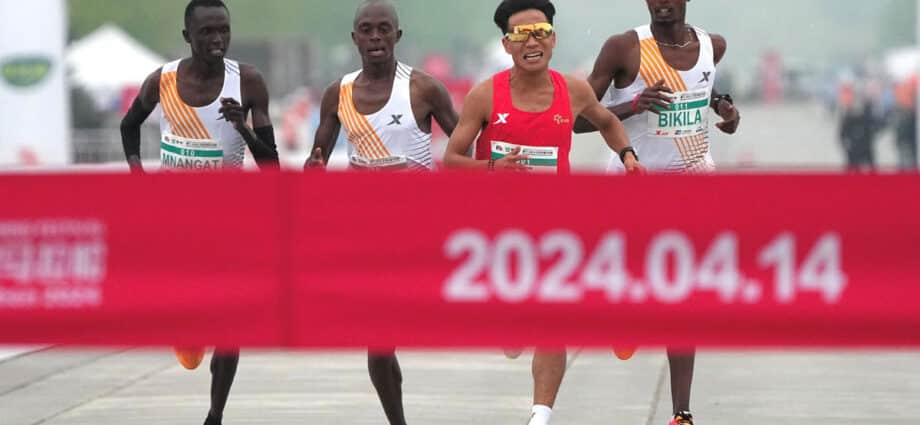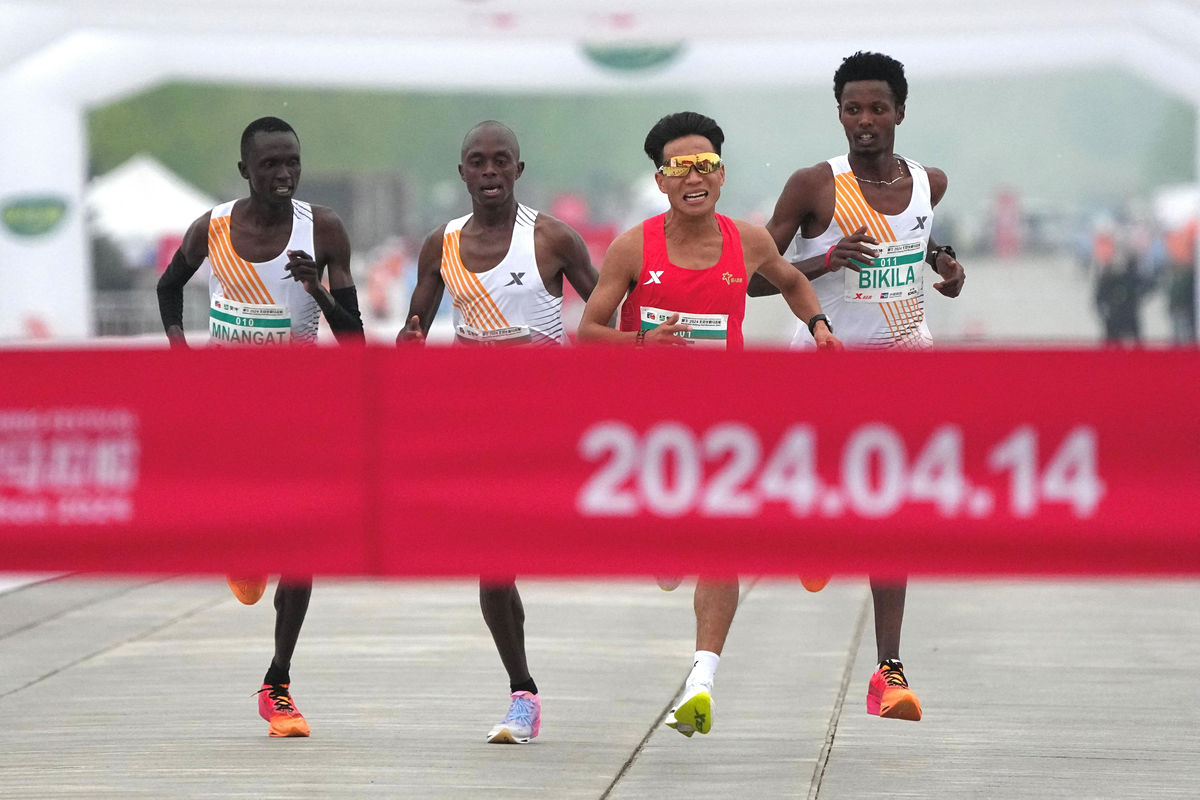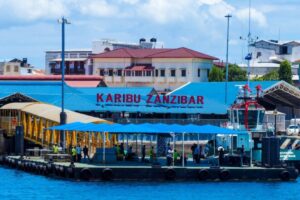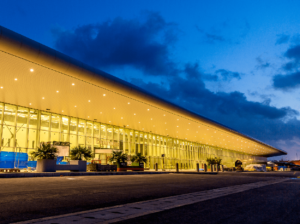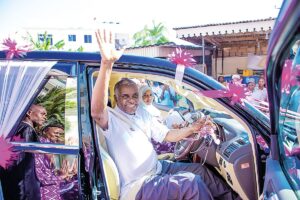Writing about the controversy—and scandal—surrounding the Beijing Half Marathon on Sunday, TIME magazine said: “It was a dramatic, film-worthy display of sportsmanship—or cheating, depending on how you see it.” It was a story that managed to briefly knock the boiling politics of the Middle East—following Iran’s launch of missile and drone attacks on Israel on the weekend—off the top trending slot on social media.
Kenyan runners Willy Mnangat and Robert Keter and Ethiopia’s Dejene Hailu Bikila were swept up in a social media storm after footage of the end of the race showed them slowing down to let China’s home hero and Asian Games marathon gold medallist He Jie win.
As the group drew towards the Finish, He began to slip behind. Noticing this, the three East African runners slowed down, allowing He to catch up with them, and then waved him on. Allegations of race fixing followed not too long afterwards, and the Chinese race organisers have launched an investigation.
Mnangat has spoken out, at first saying he helped He because the Chinese athlete was “his friend”, but later changed his story and said he was there as a pacemaker in the race. However, media reports say an official document from the event shows the race result with Bikila, Keter and Mnangat in second, third and fourth place, respectively, and all of them listed as competitors.
Reciprocal diplomacy
Some good Africans have suggested it was reciprocal diplomacy: Letting He win as gratitude to China for all its support for building African roads, railways and trade for the past 20 years. To many though, it was a shameful spectacle. The East African trio might as well have carried He (who didn’t show the slightest hint of embarrassment) legs first across the finish line.
As we wait for the results of the investigation, the incident yet again has spotlighted game/match-fixing and cheating in sports. A quick internet search will yield a very impressive history of sports cheating, dating back to the 1870s—from boxers falling to the canvas before they are hit to disgraceful game-fixing in baseball.
It all tells us that there is a big market out there for losing and coming second and third. The losers and those who throw away games can sometimes make more than the winner. That is because game fixing is driven by betting, where you make the biggest money if you win after betting on the less likely result.
If a sensational two-time record-breaking Kenyan marathoner (call him Festo Cheptei) enters a race, most punters will bet on him winning—and he most likely will. The pot will be shared among the many who will bet on that outcome.
Obscure barefoot runner
However, if you bet that an obscure barefoot runner from Mbuji-Mayi in the Democratic Republic of Congo called Antoine Lingomba, who is running in an international marathon for the first time, will take the day, you are likely to be the only one doing so.
Should he win, it will be a big payday for you as you will pocket most of the money from the many who lost (it’s an oversimplified and slightly inaccurate picture of how betting works, but you get the picture). Because there is so much to be made in losing than in winning, the greater incentive is for Cheptei to throw away the race.
There have been Kenyan commentators in the past who have argued that so much long-distance running talent is coming out of the country that there is little room for them at the top. However, the opportunities for them are at the bottom. In things like letting the Hes of this world win a run which is not one of the world’s great high-stakes races like the Boston, London or Berlin marathons.
There is also a market for it when politics and sports mix. Burundi’s late President Pierre Nkurunziza loved to play football but he wasn’t the country’s best footballer. Somebody was arrested for tackling him too hard on the field during a game. Sensible goalkeepers knew what to do when the President got off a shot toward the goalpost: They jumped left if he kicked the ball left.
Uganda’s 1970s military dictator Idi Amin was big, very big, on all sorts of sports: Basketball, swimming, boxing, motor rallying…. But he was mostly hopeless at them all. He swam at 45-degree angles. During motor rallying, leading drivers would be tipped off when he was coming and they would park their cars in the bush, out of sight, and only come out after he had driven past.
And there is a lot of money to be made in throwing away political races. In many parts of Africa these days, some candidates enter elections, even the presidency, so that they can be bought off, especially if they are hugely popular in select areas. As soon as they draw big crowds, it is likely that the incumbent governor, member of Parliament or president will panic and offer them a deal they can’t refuse.
The best fellows, however, do it in style. The next time Mnangat helps a friend, maybe he shouldn’t wave him by.
Mr Onyango-Obbo is a journalist, writer and curator of the “Wall of Great Africans”. @cobbo3

